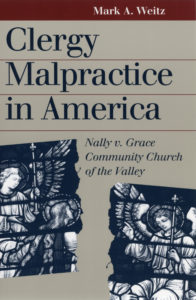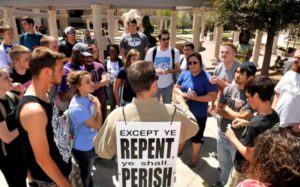 The feast of St Michael and all Angels in the Anglican calendar falls on Thursday 29th September this year. My local parish decided to celebrate it a bit early last Sunday and the visiting retired bishop, who came for a confirmation, found himself preaching about angels. I do not intend to repeat the points that he made in his sermon but it set me off on some reflections of my own. The obvious question with which the bishop began, was to ask: what are angels for? The answer that was given was that they exist to worship God. For this reason, pictures of angels can be found in many churches, whether as carvings among roof timbers, in the stained glass or painted on the walls. This was what I found in the church I mentioned a few blogs ago in Uppsala in Sweden. People who attended church, especially in the past, would have found it helpful to be reminded of the activity of these spiritual beings as they worship God into all eternity.
The feast of St Michael and all Angels in the Anglican calendar falls on Thursday 29th September this year. My local parish decided to celebrate it a bit early last Sunday and the visiting retired bishop, who came for a confirmation, found himself preaching about angels. I do not intend to repeat the points that he made in his sermon but it set me off on some reflections of my own. The obvious question with which the bishop began, was to ask: what are angels for? The answer that was given was that they exist to worship God. For this reason, pictures of angels can be found in many churches, whether as carvings among roof timbers, in the stained glass or painted on the walls. This was what I found in the church I mentioned a few blogs ago in Uppsala in Sweden. People who attended church, especially in the past, would have found it helpful to be reminded of the activity of these spiritual beings as they worship God into all eternity.
Our imagination is supremely challenged when we contemplate this idea of eternity. To do anything for ever sounds to be extremely boring. We would of course be making a category mistake in placing eternity alongside our experience of space-time. If space-time were indeed the only reality, then of course endless activity of any kind would seem boring and pointless. But eternity is not of course to be seen as an endless extension of what we call time. It is rather to be thought of as an endless present or an eternal now. Even in saying this, it is hard for us to imagine that any single activity could be so enthralling, so absorbing of mind and spirit that we had no desire to do anything else. Having thought about this topic for some time, I find I do not have a problem in recognising that the worship of God, the arrival at the place of ultimate beauty, fulfilment and the end of all longing, could happen in a single eternal moment. That possibility is something profoundly to be longed for. In our everyday experience we see in contrast, not perfection, but a process of change and decay affecting our everyday human experiences. Life gives way to death, peace is overtaken by conflict and states of happiness and contentment often collapse into despair. Experiencing life in this way means that we find it hard to imagine the ultimate perfection we associate with God. Nevertheless, our lives do sometimes give us some hints of transcendent perfection. In practice, however, we find it difficult to hold on to these special moments. These glimpses of heaven and eternity, whether they be in our encounter with beauty or in some other form of transcendent moment, can seldom be sustained beyond a few fleeting moments. It is to the mystics that we must look if we want to see in a language form something of the ineffability of an encounter with the divine.
The language which is used in Scripture to describe the dimension of existence we call heaven, describes it as populated by angels and a redeemed humanity. The book of Revelation in particular suggests that this ‘place’ is the true destination for all of us. Together with the angels we are called to share in this activity of contemplating and worshipping God for ever. For minds conditioned by living within space-time, it is hard to imagine this as a state of ultimate bliss. The fact that it is difficult to imagine does not make such an insight impossible or improbable. In the Anglican tradition we hear said each time we attend a eucharist, ‘therefore with angels and archangels and with all the company of heaven’. This is a reminder that each eucharist service has at its heart an anticipation of the state of divine eternity. In this way the church as a whole has never lost its awareness that each service enters into a moment where the living and departed are joined with angelic beings in the ultimate act, the act of worshipping God.
Many people are frankly puzzled by any talk of a life on the other side of the grave. Part of the problem is that they cannot imagine anything other than an existence which is tied into the limitations of time and space. It does require quite a bit of imagination to see that there could be a mode of existence which is not beholden to the limitations of the world that we live in. When I speak to people about the possibility of eternity, particularly among the dying, I remind them of different experiences in their lives which have spoken to them of something which can never be destroyed. A life well lived, a relationship enjoyed, – these things never completely disappear. Many things of profound importance continue to exist, even in the form of a distant echo within the vastness of human experience. Those of us who enjoyed loving attention from our parents benefit from the love that they received from their parents and so on back through the generations. The love shown by a great great-grandparent to a child two hundred years ago in this sense still lives on in us. Most people can see something in their lives which speaks to them of beauty and eternity and thus they can, if they allow themselves to, ponder what might be indestructible and even divine in their lives. The two words, love and beauty, both hint at the dimension of life within the experience of most people which can never be destroyed. I often want to quote the verse in Philippians which speaks about all that is ‘true, noble, just, pure and lovable and gracious’. Paul’s audience is encouraged to fill their thoughts with these things. Our comment would be to say that each of these qualities is pointing to something of eternal significance; thus they are harbingers of heaven itself.
In this blog I have been suggesting that an understanding of angels will require us to use the gifts of imagination and insight. It is not a question of believing or not believing in angels. It is a question of opening ourselves up to the dimension where angels are believed to exist, the dimension of ultimate beauty and eternity. We cannot argue or talk our way into such a place, we can only live our lives in such a way that they are receptive to such things. I am reminded of the hymn, ‘Teach me my God and King’. The hymn speaks of a man looking at a glass and seeing through it and beyond it to glimpse something of heaven. My interpretation of these words would be to suggest that the author wants us to be the kind of Christian that uses our sensitivity, our imagination and openness to glimpse God in the ordinary events of life. That will not be a question of belief or any kind of intellectual process. It will be a readiness to wake up each morning with the curiosity and the openness of child and be ready to see God in all things. Perhaps this quality of openness to spiritual realities that are all around us is the real message of the feast of St Michael and All Angels.








